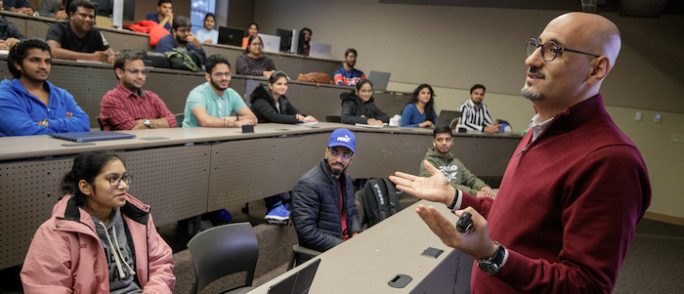The Bachelor of Science in Information Science teaches students about the roles, technologies, and practices for designing, developing, and implementing web-based information systems. This degree is a combination of two computing disciplines: Information Systems and Information Technology. Our courses cover programming, databases, IT infrastructure, and application development.
As an information science major, you will learn how information is used by a variety of disciplines (engineering, bioinformatics/medicine, sciences, technology, mathematics, business, etc.), as well as being exposed to exciting technologies for working with information in new and innovative ways (Virtual Reality, Semantic Web and Social Media, Data Mining and Visualization, Artificial Intelligence/Robotics, etc.).
Future Careers
The B.S. in Information Science prepares students for a wide range of technology jobs and careers such as:
- Applications Developer
- Database Administrator
- Network Specialist
- Quality Assurance Tester
- System Administrator
- Web Developers/Administrators
 Accredited by the Computing Accreditation Commission of ABET.
Accredited by the Computing Accreditation Commission of ABET.
Learn more about our student outcomes and program objectives.
Admission Requirements
Students should be practiced users of computers and have good analytical skills. Information Science focuses on knowledge-based systems that are derived from data and our students use computers as the primary tool for data analysis and modeling and as a host in the design of knowledge applications.
